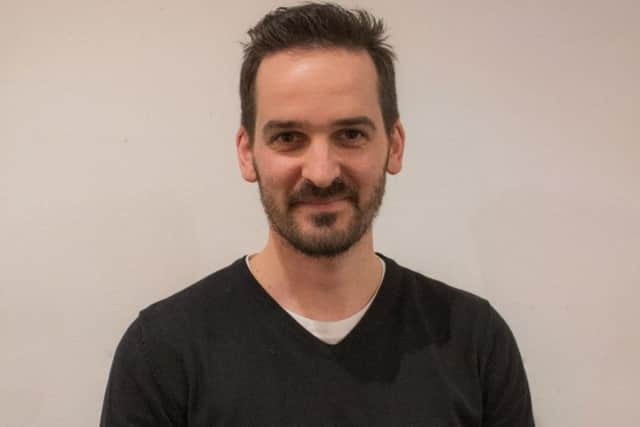“That sounds like a manifesto to me” - Joyce McMillan on what the new creative team at the Traverse could mean for the future of theatre in Scotland


And Orla O’Loughlin’s recent six-year stint in the job - only the second by a woman - has followed the pattern, culminating in some superb work by female writers in Scotland, including Cora Bissett, Zinnie Harris and Frances Poet, as well as other hits including Kieran Hurley’s Mouthpiece.
This week, though, the Traverse has made a move unprecedented in its 56-year history, and appointed not one new artistic director, but two. Gareth Nicholls - O’Loughlin’s associate since 2017, director of international smash Ulster American, and interim artistic director for the past year - steps up to a role for which his career so far has prepared him in brilliant style. Born in Huddersfield in 1984, Nicholls came to Glasgow to study theatre when he was 18, and has worked in Scotland ever since, notably as an outstanding associate mainstage director at the Citizens’s Theatre between 2015 and 2017, creating shows that including a stunning large-scale version of Trainspotting, and a superb production of Gitta Sereny’s Into That Darkness, starring Blythe Duff. At the Traverse, Nicholls has combined his big-stage flair as a director with his passion for working with writers, directing acclaimed shows by David Ireland (Ulster American), Gary McNair, Oliver Emanuel, Meghan Tyler and others.
Advertisement
Hide AdIf flair in putting on a show that raises the roof is an important quality in a Traverse artistic director, though, then the theatre has just doubled its potential; because from today, Nicholls shares the artistic directorship with Debbie Hannan, the brilliant young Edinburgh-born director who has just directed an explosive stage version of Jenni Fagan’s mighty 2012 novel The Panopticon, produced by the National Theatre of Scotland.


At 31, Hannan is not the youngest artistic director in the history of the theatre; but this is her first crack at jointly running a building, a job of which she has always dreamed. After a first degree at Edinburgh University and a one-year directing course at the Royal Conservatoire in Glasgow, she has been directing professionally for almost a decade, and has built up an impressive record, first as an assistant to Vicky Featherstone at the National Theatre of Scotland, then at the Royal Court in London and the Citizens’ Theatre, Glasgow, where she directed memorably intense studio productions of Dostoevsky’s Tales From The Underground and Howard Barker’s Lot And His God. Last year, she was appointed an associate director of The Bunker in London; and this year in Scotland, she has directed not only The Panopticon, but a fine Tron Theatre production of Marius von Mayenburg’s The Ugly One, exactly the kind of fierce, stylish and unforgiving social satire that Hannan enjoys.
So what can audiences and artists expect, from a Nicholls-Hannan leadership at the Traverse? The two have not worked closely together before, but their priorities seem strikingly similar. As directors from working or lower middle-class backgrounds, working in an industry often marked by privilege, they are both passionate about theatre’s role in making space for the widest possible range of voices, and in reaching out to a wider public. They are also conscious of the history of Scottish theatre in challenging these boundaries; Nicholls has been immersed in the world of Scottish theatre for almost two decades, and Hannan is the daughter of Edinburgh journalist and trade unionist Martin Hannan, and in some ways an inheritor of a radical tradition that goes back to the 1970s work of 7:84 and Wildcat.
And although it’s arguable that an artistic policy run by two people risks emerging as a beast designed by a committee, there’s also something highly appropriate, at this moment of high concern around gender issues in theatre as elsewhere, about appointing a joint male-female leadership to navigate these times. “During the recruitment process,” said Linda Crooks, “we met many inspiring and exciting candidates, but Gareth and Debbie were truly exceptional. We simply could not pass up the opportunity to bring them both on board.”
Alongside the appointments of Nicholls, Hannan and new director of creative development Lesley Anne Rose, the Traverse has also announced a step up in the role of Sunniva Ramsay, from creative producer to senior creative learning producer, and a major strengthening of the creative presence on its board, with the addition of playwright Kieran Hurley, Ken Loach, film producer Rebecca O’Brien and Bryony Shanahan, joint artistic director of the Royal Exchange.


“I am thrilled to be returning to my hometown to join such a brilliant and ambitious team,” said Hannan, on her appointment. “The Traverse’s adventurous and inherently democratic mission to deliver new stories and expand their audiences is rooted in the kind of radicalism that Scotland does best.
Advertisement
Hide Ad“I first came to the Traverse as a local kid on a school trip,” she added, “and heard working class characters speaking in my accent on stage for the first time. I knew then that my voice was valid, that the stage wasn’t an exclusive space. We will bring this experience to a whole new range of people, as we go beyond the building, to expand who tells and experiences our stories.”
That sounds like a manifesto to me; and with this week’s appointments, the Traverse may just have put together the kind of formidable team that can deliver on it, even in tough financial times .